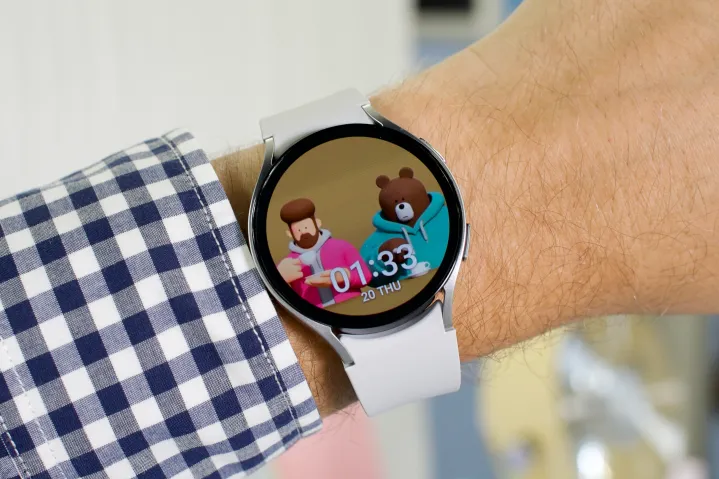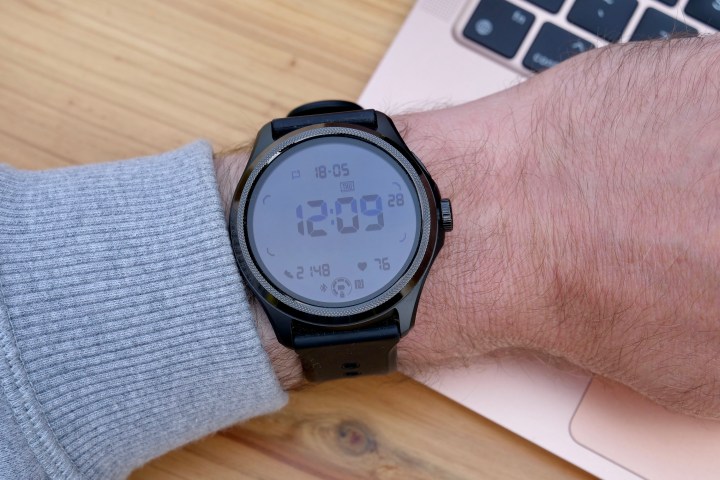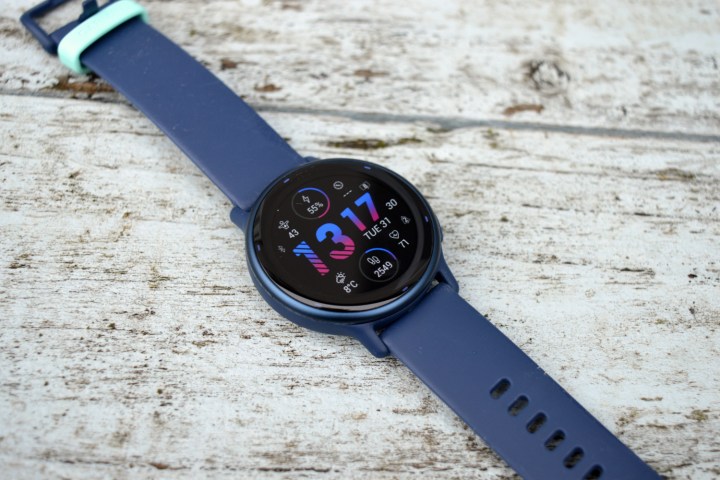
It’s no secret that we weren’t fans of the first Google Pixel Watch. However, Google heard all the criticism of its smartwatch debut and made amends, coming back with the Google Pixel Watch 2. Its second attempt was much better, adding strong performance, exceptional comfort, and a solid battery life to the fitness tracking of Fitbit. While it still has some issues, it’s now a product we can recommend buying.
But just because it’s now good doesn’t mean there aren’t alternatives to be had. There are a number of smartwatches that are better suited for those looking for a longer battery life, a focus on fitness, or a simpler experience. Some are just flat-out better. If you’re considering buying a Google smartwatch, you need to know about these five smartwatches you should buy instead of the Google Pixel Watch 2.
Samsung Galaxy Watch 6

While the Pixel Watch 2 is much improved over the original Pixel Watch, it still has a long way to go before it’s capable of taking on the king of the Android smartwatch: Samsung. If you’re looking for an alternative to the Pixel Watch 2, then you can’t go wrong with the Samsung Galaxy Watch 6 — one of the best smartwatches you can buy.
There are a number of areas where the two watches are similar. They’re both exceptionally comfortable to wear, and the strong processors mean fast performance on both devices. The batteries are also equally good, with both lasting around a day and a half and recharging taking a similar amount of time. The Pixel Watch 2 is a faster charger, but there’s not a huge amount of difference. As you’d expect for a modern smartwatch from a premium brand, fitness tracking is excellent, and Wear OS 4 is present on both, too.
But there are some differences, and it’s largely in areas where the Galaxy Watch comes out on top. The Galaxy Watch 6 comes in more than one case size, correcting a huge problem with the Pixel Watch 2, which only has one option. In addition, the Galaxy Watch 6’s design is generally a bit sleeker, and the bezels are much slimmer, meaning you get more display respectively for the size. In general, Samsung’s watch is also more polished. Samsung has had a lot more time to perfect what it’s offering, and that really shows through in the Galaxy Watch 6. Finally, there’s also no subscription needed to access all the data in Samsung’s fitness tracking. The Pixel Watch 2 uses Fitbit’s tools for fitness, and while they’re excellent, they require a subscription for the more advanced metrics.
The Samsung Galaxy Watch 6 is easily one of the best smartwatches available today — and a solid alternative t0 the Google Pixel Watch 2. Prices for the Galaxy Watch 6 start from just $300, though you’ll pay $30 more for the larger case size, and $50 extra for an LTE-connected model.
OnePlus Watch 2

Google isn’t the only newcomer here, as OnePlus has also made a recent foray into smartwatches. The OnePlus Watch 2 is, like the Pixel Watch 2, the company’s second stab at a smartwatch and an improvement over the first attempt. But is it a good alternative for the Pixel Watch 2? It is, but with a few caveats to keep in mind.
Like the Pixel Watch 2, it’s very comfortable to wear, and it’s not a problem to wear it all the time — even in bed while sleeping. The performance is also solid, thanks to the Qualcomm Snapdragon W5 chip. But there are also elements that dip below what’s offered by Google’s smartwatch. The fitness tracking, while comprehensive, can be a little inaccurate, particularly the step and sleep tracking. There’s also not much analysis of your stats, and it certainly does not have the depth of analysis you’ll find from the Pixel Watch 2’s Fitbit technology. Also, there’s a crown you can use as a button, but spinning it does nothing, which is another disappointment. Twisting the crown to navigate menus is one of our favorite smartwatch control methods, and it being teased here but not implemented is crushing.
So, why are we recommending the OnePlus Watch 2 as a strong alternative to the Pixel Watch 2? Because what it does, it does very well, and that is going to appeal to some people who value those strengths over its weaknesses. The OnePlus Watch 2’s headline feature is the battery life. Unlike most smartwatches, which offer two days of battery life at most, the OnePlus Watch 2 is capable of making it three days on a single charge. Even better, stick it in power-saving mode, and it powers down Wear OS and boots up a low-powered operating system that OnePlus claims can keep the watch going for an astounding 12 days. You’ll lose apps, the always-on display, Google Assistant, and other features, but if you’re spending a long time between charges, then this feature is vital.
While it has its downfalls, the OnePlus Watch 2’s battery life elevates it beyond the Pixel Watch 2 while offering a lot of similar strengths. Stat nerds and fitness buffs may want to stay away from it, but for anyone else, this is a strong alternative. It costs $300, putting it in a similar ballpark to Google’s smartwatch.
Mobvoi TicWatch Pro 5

Mobvoi isn’t a household name, but it should be, as the TicWatch brand is an underappreciated gem. The latest entry in the roster, the TicWatch Pro 5, is an excellent smartwatch, and while not perfect for everyone, is worth checking in case it’s perfect for you.
We’ll cover its weaknesses first because they are pretty glaring. First, it’s only available in one size. That’s the same problem of the Pixel Watch 2, but keep in mind that the TicWatch Pro 5 is pretty large, and it’s not likely to work for anyone with smaller wrists. It’s also not as comfortable as other entries on this list or the Pixel Watch 2, and there’s also no option for an LTE connection either.
So, with those caveats in mind, what does the TicWatch do well? Quite a lot, as it turns out. It’s equipped with the Snapdragon W5+ Gen 1 chip, which is blisteringly fast and rivals even the Apple Watch for speed. It also sports a four-day battery life and a dual-screen display with a hybrid function that helps to save battery life. It looks great, the build is high quality and durable, and it runs Wear OS flawlessly. Prices start from $350, matching the Pixel Watch 2.
Fitbit Charge 6

You don’t have to stick with a smartwatch when you’re looking at Pixel Watch 2 alternatives. Fitness trackers are no longer the cheaper, lesser cousins of smartwatches, and are very much strong devices in their own right. The Fitbit Charge 6, in particular, is a great device to consider if you want a lot of what makes the Pixel Watch 2 great, but in a much simpler package.
You’ll be unsurprised to learn the Fitbit Charge 6 uses Fitbit’s fitness tools, and that puts it on par with the Pixel Watch 2, which uses the very same suite of features. As such, you’re getting the same level of excellent fitness tracking, and while you have to pay for a Fitbit subscription to get the most comprehensive analysis, that’s the same as the Pixel device, so there’s no difference there. It’s comfortable, so it’s easy to forget you’re wearing it, and the tiny OLED display is a delight to behold.
Yes, you’re getting fewer features than you would with the Pixel Watch 2 — including a complete absence of apps and Wear OS — but the major advantage is it’s much simpler to use as a result. It’s very much the alternative for the fitness buffs among us, especially those who don’t have much need for smart features. That’s a good thing, as notification mirroring on the Charge 6 can be a little inconsistent. Oh, and because it’s a fitness tracker, the battery life is measured in weeks rather than days. Two weeks, to be precise, which is far beyond anything any true smartwatch can offer.
It’s well priced, too, adding another big advantage. The Fitbit Charge 6 starts from $160, less than half the price of the Pixel Watch 2. The Pixel Watch obviously has more features and sensors to its name, but if those additions don’t tickle your fancy anyway, you might do well to save the money and buy the Charge 6.
Garmin Vivoactive 5

Of course, you don’t have to rely on Fitbit for fitness trackers. Garmin is one of the oldest names in the business, and the Garmin Vivoactive 5 is one of its latest devices. Something of a smartwatch/fitness-tracker hybrid, the Vivoactive 5 has many of the features that make the Pixel Watch 2 great but without a few of the shortcomings that come with the Google Watch.
Key to the watch’s success is the strength of the fitness tracking. Like the Pixel Watch 2, the Vivoactive 5 is an exceptional fitness tracker, and there’s also a strong emphasis on mental health well-being as well. If it thinks you’re pushing yourself too hard and your stress levels spike, it’ll let you know and tell you if you need to kick back for the evening or get an early night. There’s no subscription needed for all that, which is a serious advantage over Fitbit’s paid model. Also included is a long battery life, which varies depending on the features enabled, but a week between charges is about what you can expect — way beyond what the Google smartwatch can achieve.
Of course, it comes with some downsides. There’s no Wear OS here and no direct app support as a result. There are some apps you can download through Garmin’s own app store, but support is limited to very few. Performance is also a little sluggish and certainly not as smooth as the Pixel Watch 2. Still, at $300, it’s a solid alternative choice for anyone who wants a health-focused watch but doesn’t want to dive into Fitbit’s platform.